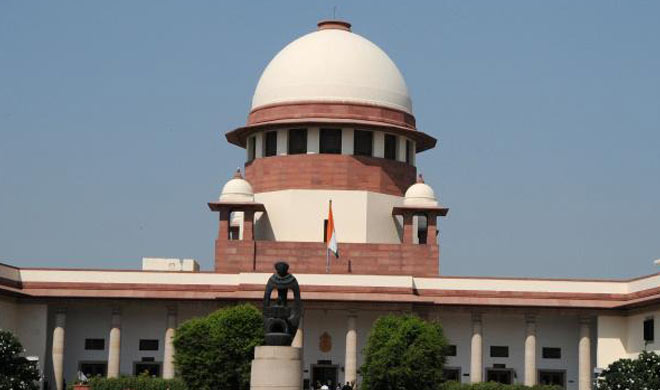The Supreme Court today once again rued Centre over rising bad loans and asked the government to give the list of "corporate entities" against whom outstanding loans were in excess of Rs 500 crore.
The apex court also sought the "empiricial data" on recovery cases pending for last ten years in debt recovery tribunals (DRTs) and their appellate bodies.
A bench comprising Chief Justice T S Thakur and Justices A M Khanwilkar and D Y Chandrachud rued the lack of infrastructure and manpower at DRTs and debt recovery appellate tribunals (DRATs) which decide recovery cases.
The court noted that the legislative changes on fast disposal of such matters will not yield results unless infrastructure is not "commensurate" with the burden of work.
The bench asked the Centre to file an affidavit dealing with various issues and sought "empirical data on the pendency of cases for more than ten years and the list of corporate entities where the amount outstanding is in excess of Rs 500 crore".
The court asked "whether the timelines set down in the amended legislation are capable of being achieved with the existing infrastructure including judicial personnel and staffing pattern of the debt recovery tribunals and debt recovery appellate tribunals".
The court also wanted to know whether any scientific study has been conducted on the availability of infrastructure and "what steps the Union government intends to adopt to enhance the infrastructure of debt recovery tribunals and the appellate tribunals in terms of physical infrastructure, judicial manpower and non-judicial personnel required for the efficacious functioning of the tribunals".
It has asked as to whether there was any specific plan of action including time schedules within which the existing infrastructure would be upgraded so as to achieve the time frame for disposal indicated in the amended legislation.
In the judgement, the bench also referred to an incident in which the chairperson of the DRAT, Allahabad wrote to the CJI saying he was constrained to tender his resignation from the post due to absence of "infrastructure and facilities".
Dealing with the recent amendment in law which provides for speedy disposal of recovery cases by DRTs and DRATs, the bench said there should be adequate infrastructure and manpower to meet the statutory deadline which says that such matters are required to be disposed of in 180 days.
"Legislative changes to provide for the expeditious disposal of proceedings before the debt recovery tribunals may not by themselves achieve the intended object so long as the infrastructure provided to the tribunals is not commensurate with the burden of the work and nature of judicial duties," it said.
The Centre, in its recent affidavit, had apprised the court that more than 70,000 cases involving an amount of Rs 5 lakh crore approximately are pending before DRTs, of which many are pending for more than ten years.
The bench noted that though the Act concerned provides for disposal of recovery applications within 180 days, the cases have remained pending for years together.
DRTs and DRATs "suffer from a lack of adequate infrastructure, manpower and resources. Having due regard to the important adjudicatory function which is entrusted to these tribunals, the efficacy of parliamentary legislation will depend in a large measure on the efficiency with which the tribunals discharge their duties," it said.
Earlier, the court had reserved its order on one of the issues, raised in the PIL, relating to lack of infrastructure, manpower and other facilities at DRTs and DRATs which deal with banks and FIIs' loan recovery petitions.
It was hearing the PIL, filed in 2003 by the Centre for Public Interest Litigation (CPIL), which had originally raised the issue of loans advanced to some companies by state-owned Housing and Urban Development Corporation (HUDCO).
The plea had said that about Rs 40,000 crore of corporate debt was written off in 2015.
The bench had clarified that the issue of loan defaults would be dealt with by it later.
During the hearing, the court had directed RBI to provide a list of companies which had defaulted bank loans of over Rs 500 crore while expressing serious concern over the growth in bad loans.
It had also asked RBI to provide a list of companies loans of which have been restructured under corporate debt restructuring schemes.
(With PTI inputs)

